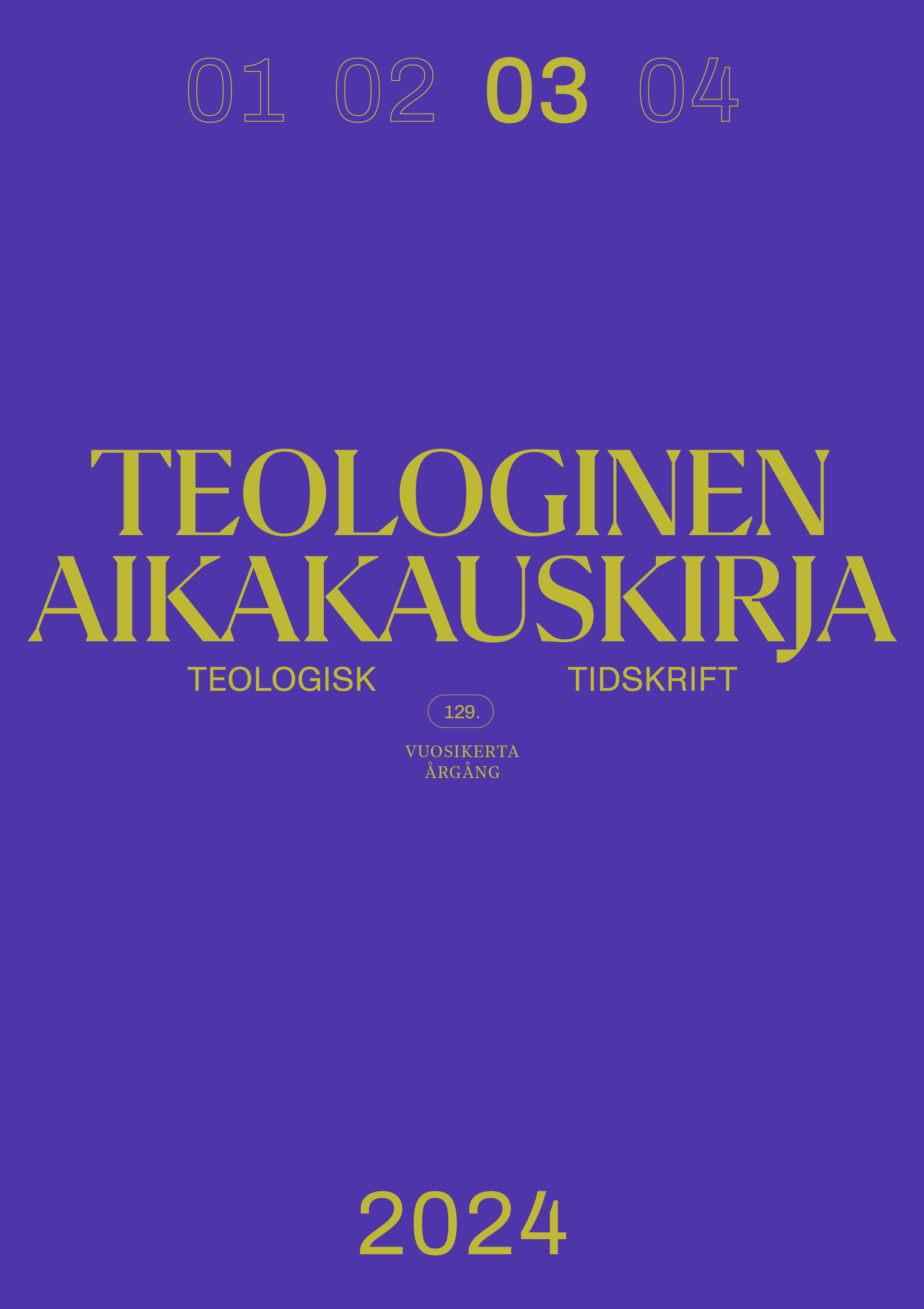The Impacts of the Environmental Crisis on Meanings in Life
An Analysis of the "Meaning Sextet" by Joel Vos in the Context of Eco-anxiety
DOI:
https://doi.org/10.62442/ta.144861Keywords:
merkitys, ympäristökriisi, ympäristöetiikka, ekoteologia, ympäristöahdistus, Vos Joel, ilmastonmuutosAbstract
The environmental crisis is getting more serious all the time and this also causes existential and spiritual impacts. Both empirical interview studies and theoretical articles have found that the environmental crisis can cause many serious reflections related to the meaning of life and meanings in life. The topic is linked with the phenomenon of eco-anxiety, a term with many connotations. Broadly defined, eco-anxiety is about various difficult feelings that are significantly related to the environmental crisis. This article examines especially the existential and spiritual dimensions of eco-anxiety. The main focus is on the application of the “Meaning Sextet” framework, created by meaning researcher Joel Vos, to the context of environmental anxiety and crisis. Vos draws from both empirical and theoretical studies and has created a six-part classification model of meanings: materialistic, hedonistic, self-oriented types, social types, larger types and existential-philosophical types. The article analyzes the possible impacts of eco-anxiety on these six types of meaning and at the same time critically evaluates Vos' framework from the perspective of environmental ethics and religious studies. His differentiation of types of meaning is found valuable, but at the same time there is clearly overlap between some of them and, for example, the influence of religion is connected to them cross-cuttingly. The environmental crisis strongly challenges certain materialistic and hedonistic meanings experienced by people, because the overconsumption of natural resources threatens the carrying capacity of ecosystems. Meanings related to one's own self, for example in relation to self-image and self-confidence, can undergo significant changes in processes of eco-anxiety. Strong effects can also occur in a person’s relationship with others, both in general (social types) and with deeply meaningful communities (larger types, e.g. religious). In Vos's classification, the existentialist-spiritual features of eco-anxiety are especially related to the sixth category (existential-philosophical), but it is worth asking whether these can be meaningfully separated from the lived worldview (or theology) and thereby from the other categories. The method of the article is a systematic analysis of multidisciplinary source material and a philosophical discussion.


